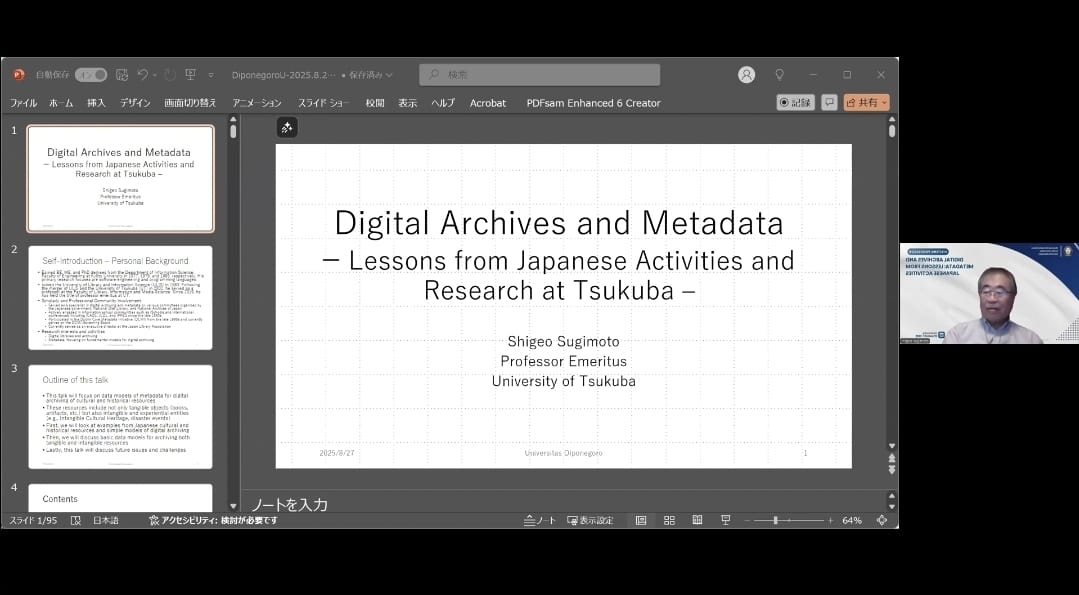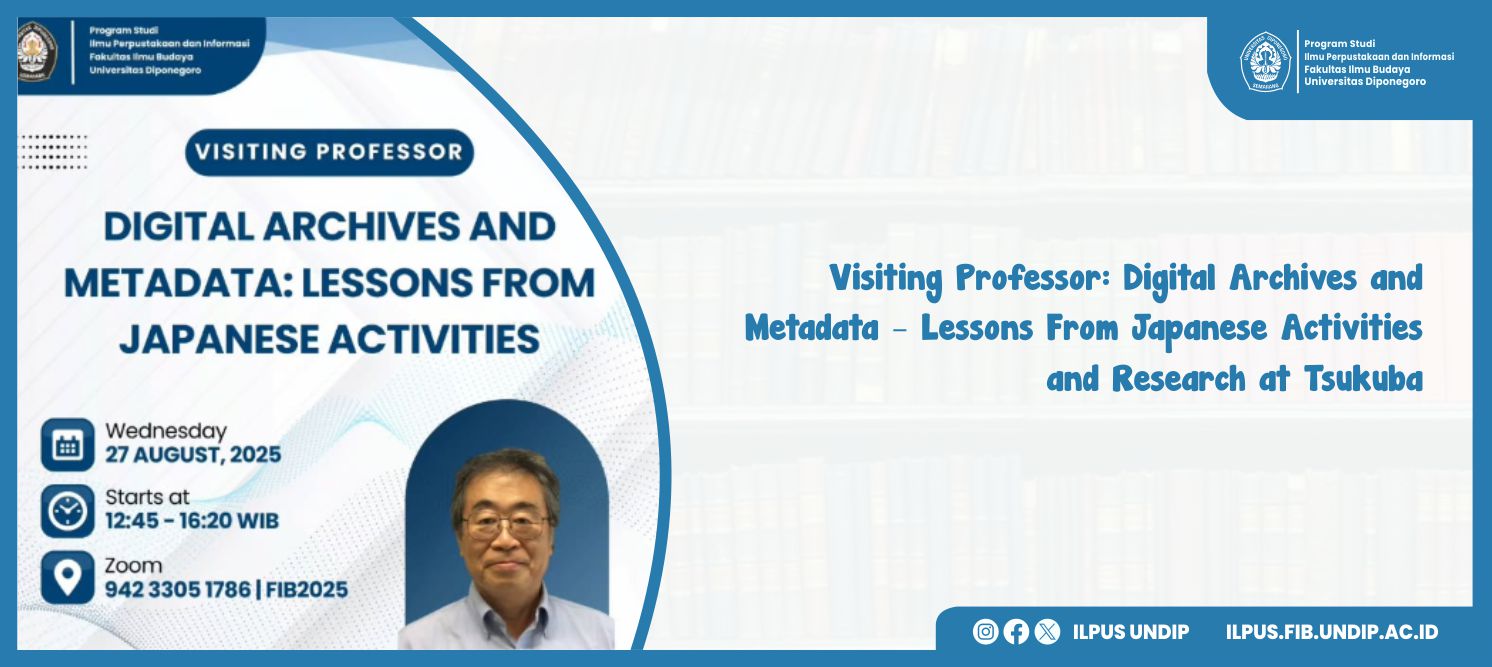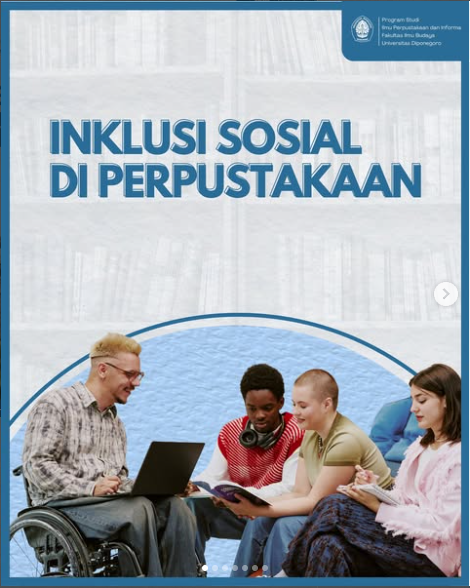Semarang, August 27, 2025 – The Library and Information Science Study Program, Faculty of Humanities, Universitas Diponegoro, held a public lecture through a visiting professor event with the theme “Digital Archives and Metadata—Lessons from Japanese Activities and Research at Tsukuba,” presented by Prof. Shigeo Sugimoto, Professor Emeritus from the University of Tsukuba, Japan

Prof. Shigeo Sugimoto is an expert in software engineering, programming languages, and library and information science. He began his academic career in 1983 at the University of Library and Information Science (ULIS), then joined the University of Tsukuba in 2002, where he actively developed research on digital libraries, metadata, and digital archiving. In addition, he has been involved in various international communities such as the Dublin Core Metadata Initiative (DCMI), iSchools, ICADL, JCDL, and iPRES.

Prof. Shigeo explained that the development of digital collections of cultural heritage began in the early 1990s, particularly at the Library of Congress in the United States and a number of other large libraries and museums. The aim was preservation and access, namely to make important cultural resources accessible from anywhere and at any time via the internet. The government also supported the development of digital collections, for example, through the Digital Library Initiative (phases 1 and 2) in the United States. In addition, there were collaborative efforts between Libraries, Archives, and Museums (LAMs) to build a shared portal that could connect various important digital resources.

Furthermore, Prof. Shigeo introduced a basic model for digital archiving systems. This model emphasizes the process of collecting and curating cultural heritage objects, describing information about these objects (Culture Heritage Information), organizing data in a CHI database, providing access to the public via the internet, exhibitions, and reference services, as well as preserving cultural objects and ensuring that information about them is maintained.

He also introduced the concept of Archived Digital Object (ADO), which is a digital representation of a Real-World Object (RWO). ADO is formed through a process of converting or capturing real objects into digital form, then enriching them with descriptions of the RWO. The ADO model emphasized that every digital archive must always be linked back to the original object.

During the question and answer session, a number of enthusiastic participants asked Prof. Shigeo Sugimoto questions related to the material that had been presented. One of them, Cindy Amelia, asked, “What advice would you give to students who are interested in digital archives and metadata?” In response, Prof. Shigeo emphasized the importance of students strengthening their foundation in cultural science, digital skills, and understanding of cultural and historical values. According to him, the involvement of the younger generation is very important in ensuring the sustainability of digital archives by combining technical capabilities and cultural awareness to build a sustainable digital archive ecosystem.
Author: Dwi Indri Listia Sari




